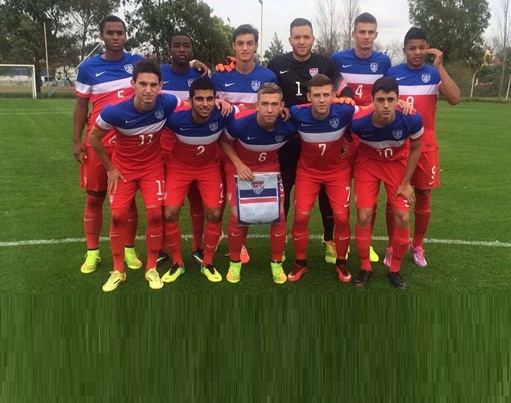Typical world soccer team trips encompass training, competition, and cultural experiences. Trips can be arranged by a range of organizations, such as travel companies, soccer academies, and clubs, which provide bespoke itineraries for destinations like Europe, South America, and the UK. This typically involves a series of trips.
Types of Trips Available
Pro Tours:
Primarily concentrated on professional training and competition, frequently including friendly matches against local or academy teams.
Invitational Tournaments:
Participation in international tournaments such as the MadCup or IberCup provides exposure and competitive experience.
Cultural and Educational Excursions:
World soccer team trips that incorporate soccer, cultural immersion, sightseeing, and language learning.
Customized Tours:
Customized packages are available for different age groups, skill levels, and team requirements.
Essential Aspects of a Soccer Journey:
Training:
Trained coaches usually conduct structured training sessions, sometimes in conjunction with professional coaches from academy programs.
Matches:
Friendly matches against local clubs, academy teams, or participation in tournaments.
Accommodation:
Choosing the right type of accommodation, including hotels, hostels, and training centers.
Transport:
Travel plans to and from the destination, as well as local transportation arrangements.
Cultural Activities:
Local culture experiences, excursions, and sightseeing opportunities.
Planning a Journey
Organizations such as Rush Soccer, Euro Soccer Trips, Pro Soccer Global, and World Strides focus on arranging international soccer tours.
Travel programs are offered by academies such as Rush Soccer.
Clubs may arrange their own world soccer team trips.
The Cost
The cost of world soccer team trips can differ significantly depending on several variables, such as the destination, length of stay, quality of accommodations, number of games scheduled, and the number of team members. Here’s a general overview of typical cost ranges:
Projected Budget Range
Budget Trips:
Between 1,500 and 3,000 dollars per person.
These typically comprise basic amenities, local transportation, and a few supplementary activities. These teams are typically designed for youth or amateur teams with limited financial resources.
Mid-Range Trips:
Between $3,000 and $6,000 per person.
They provide improved amenities, scheduled training sessions, social games, and some sightseeing events.
High-end or Exclusive Travels:
Between $6,000 and $15,000 per person.
These teams are catered for, offering premium facilities, private training areas, and multiple games, as well as cultural tours and bespoke services.
Additional Costs
Travel or airfare costs.
Individual meals and mementos
Additional training or coaching sessions
Travel insurance
Scheduling Games Management
Organizers of world soccer team trips coordinate game timetables by considering a mix of meticulous planning, effective communication, and adaptability to guarantee the team enjoys a well-rounded and captivating experience. This is how they usually approach it.
Preliminary Planning and Organization Initial Planning and Coordination
Organizers collaborate closely with the team coach or management to grasp the team’s objectives, preferred match dates, and any particular opponents or leagues they wish to encounter.
They coordinate with local soccer clubs, leagues, or organizers in the destination country to arrange friendly matches or participation in local tournaments.
Scheduling according to time constraints. Scheduling Based on Availability
Games schedules are frequently coordinated with the team’s travel plans to strike a balance between competition, practice, and exploring new places.
Matches are scheduled to take place on days when players are not traveling or resting, in order to allow for the best possible recovery time.
Ability to be Flexible and Adaptable Flexibility & Adaptability
When overseas matches involve numerous factors, event planners typically incorporate buffer days for rearrangement in the event of unanticipated problems such as travel hold-ups, inclement weather, or scheduling conflicts.
The team intends to be adaptable in order to accommodate the team’s preferences or any last-minute changes.
Scheduling integration with travel plans. Integration with Itinerary
The overall trip itinerary incorporates game schedules, thereby achieving a balance between team activities, training sessions, and leisure activities.
The team also takes into account local event schedules to avoid missing significant local games or events that could be advantageous or enjoyable.
Supply Chain and Operational Backing Logistics & Support
Event coordinators are responsible for arranging logistics including transportation between locations, scheduling match times, and accommodation arrangements, which enables a seamless event experience on game days.








